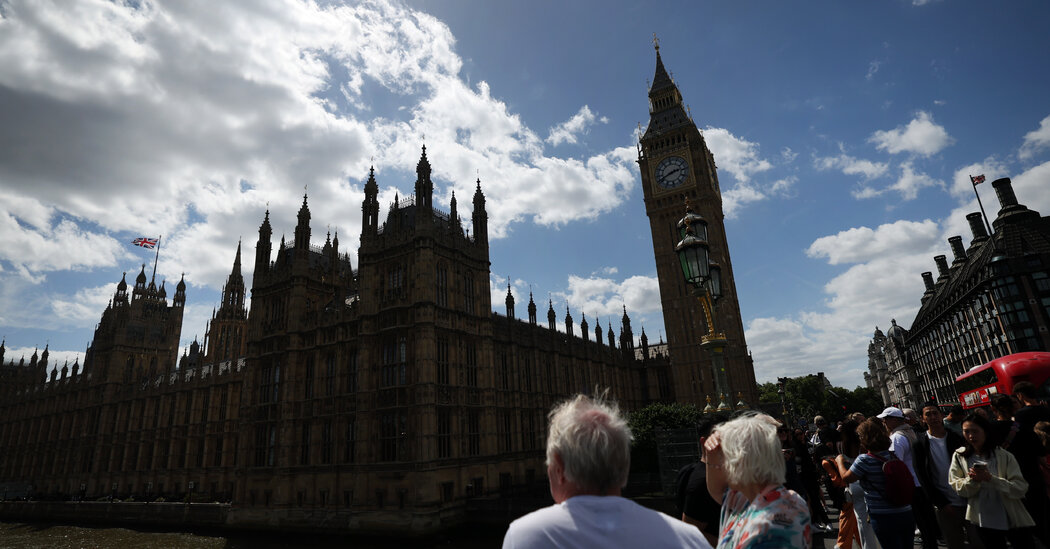Table of Contents
Thursday’s general election is a pivotal moment for Britain after 14 years of Conservative Party rule. Polls suggest the centre-left Labour Party will return to power in what would be a fundamental reshuffle of British politics.
Millions of voters in 650 constituencies vote for candidates to represent them as members of parliament. The political party that wins the most seats usually forms the next government of Britain, and the leader of that party also becomes prime minister.
To gain an overall majority, a party must secure 326 seats. If the largest party does not meet this requirement, it can attempt to form a government with the support of other parties.
Below you will find an overview of the most important parties and players in the race:
Conservative Party
Leader: Prime Minister Rishi Sunak
Mr Sunak took office in October 2022, succeeding Liz Truss, whose sweeping tax cut plan spooked financial markets and forced her to resign after just seven weeks. But Britain’s high mortgage rates and stagnant economy have persisted, and under Mr Sunak the Conservatives have suffered painful defeats in parliamentary, mayoral and local council by-elections.
Defenders of Mr. Sunak, 44, say he is a victim of the global economic headwinds caused by the coronavirus pandemic and argue that he deserves credit for stabilizing markets. But critics say he has failed to follow that up with a compelling strategy to boost growth. He has also failed to deliver on two other promises: cutting waiting times for the National Health Service and stopping the small boats that ferry asylum seekers across the English Channel. Some say that Mr. Sunak, a former Goldman Sachs banker whose wife is the daughter of an Indian tech billionaire, is simply unrecognizable.
labour party
Leader: Keir Starmer
The Labor Party has a double digit lead in the polls for more than 18 monthsMr Starmer, 61, a former prosecutor and human rights lawyer, has methodically repositioned the party as a centre-left alternative to the divided, erratic, sometimes extremist Conservatives. If Labour wins, Mr Starmer will become the party’s first prime minister since Gordon Brown stepped down in 2010.
A Labour government would operate under tight fiscal constraints, raising questions about whether Mr Starmer would need to raise taxes to pay for promised investment in the NHS and other public services. While he has made a general pledge not to raise taxes on “working people”, Labour is expected to raise taxes on oil and gas companies, private equity firms and high-income foreigners living in Britain.
Leader: Nigel Farage
Reform, a small anti-immigration party, has risen in the polls in recent months, and Conservative officials fear it could siphon off supporters from their candidates. Mr. Farage, a Brexiteer and outspoken supporter of Donald J. Trump, originally said he would not stand in the election, but changed course last month when he announced he would run for parliament in Clacton, a small seaside town where 70 percent of voters vote chose Brexit in 2016. That has shaken up the race and could help Labour by splitting the right vote.
Liberal Democrats
Leader: Ed Davey
The Liberal Democrats, a small centrist party, are well placed to win seats in affluent areas such as Surrey, where right-wing voters find the party more palatable than Labour. The Lib Dems made health and social care a key priority of their campaign, helped by Mr Davey, 58, who spoke movingly about his personal struggles, including caring for a disabled teenage son. He also subjected himself to publicity stunts, including bungee jumping and paddleboarding, to distract from the party’s larger rivals.
Other parties
In Scotland the once dominant Scottish National Party has been weakened by a funding scandal and the departure of Nicola Sturgeon as Prime Minister, giving Labour a chance to win more seats there and easing Mr Starmer’s path to the premiership. Green party made significant gains in local elections in early May. Pre-election polls showed the party was gaining support from left-wing voters, particularly among 18- to 24-year-olds who felt alienated by Labour’s mainstream.


